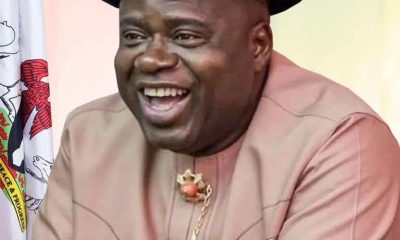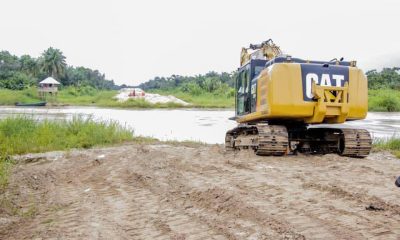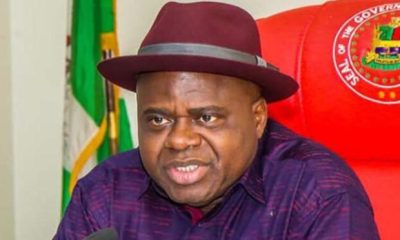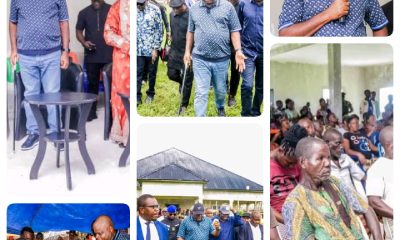Local Government Autonomy
Finally, Diri Heeds Call, Pushes for LGAs Creation in Bayelsa
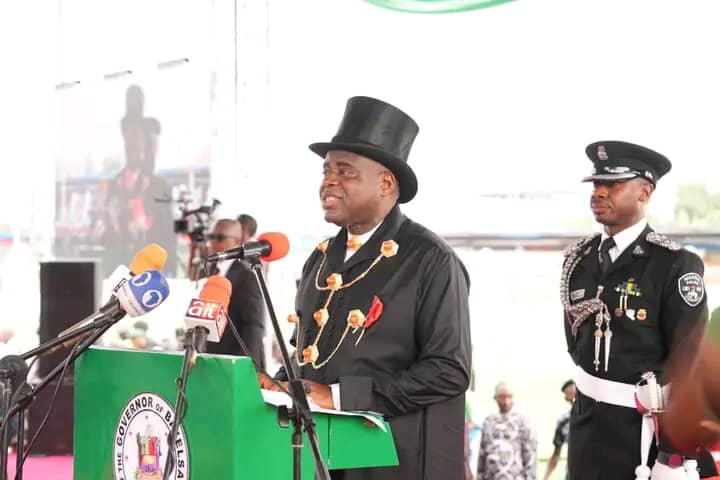
By Admin
Governor Douye Diri of Bayelsa State has made a compelling case for the creation of additional local government areas (LGAs) within the state, citing a long-standing disparity in LGA distribution across Nigeria. Bayelsa, with only 8 LGAs, stands in stark contrast to states boasting 40 or more LGAs, a situation Diri deems deeply unfair.
Speaking to journalists in Abuja following his recent victory at the Appeal Court in the gubernatorial election, Governor Diri expressed his concerns over the inequitable distribution of LGAs. He argued that Bayelsa’s limited number of LGAs hampers the state’s development and fails to reflect the true needs of its population.
“Our position from the beginning of this discussion has been that states should take charge of the number of local governments they can create. The number of local governments that they can cater for. You don’t create local governments and take resources from one state and cater for the local governments in another state. That is robbing Peter to pay Paul,” Diri stated.
He underscored the importance of correcting such injustices to prevent future conflicts and discontent. Governor Diri highlighted that the Bayelsa State government has been at the forefront of supporting local governments, ensuring their functionality and financial independence.
Local governments in Bayelsa, under Diri’s administration, have not only been able to pay salaries but are also undertaking capital projects and managing savings independently. This has been made possible through the support of the Joint Account Allocation Committee (JAAC), which addresses funding gaps where necessary.
The governor’s call for more LGAs is seen as a significant step towards achieving local government autonomy, ensuring that each region can manage its own affairs without undue reliance on external resources. This move is expected to bolster the state’s overall development and enhance the efficiency of local administrations.
Governor Diri’s push for additional LGAs in Bayelsa resonates with many who believe that a fairer distribution of local government areas is essential for equitable development and the betterment of the state’s populace.
Gov. Diri said:”First in Bayelsa, we don’t believe that we have been fairly treated. That we have just 8 local government areas as opposed to some other states with 44 and 40 local government areas. That to us is injustice. That is not fair.
Our position from the beginning of this discuss has been that states should take charge of the number of local governments they can create. The number of local governments that they can cater for. You don’t create local governments and take resources from one state and cater for the local governments in another state. That is robbing Peter to pay Paul.
And I stand as the governor of Bayelsa State, to say that we need to correct these injustices. And these are things that bring up bottled up anger and becomes remote causes that will explode one day.
For local government autonomy, in Bayelsa it is known secret that Bayelsa State government has been the source of the strength of local governments. We have not only augmented for local governments, we have set up a system that is making local governments to be functional in Bayelsa State.
Local governments are not only paying salaries, local governments from when we took over are now involved in capital projects and having savings. And they are all been managed by the councils, not by Bayelsa State government.
The issue of JAAC, the joint account is to enable the state government fill the gap where there are gaps in other local government areas.”

Advert
Video: House of Representatives Committee Proposes Creation of 31 New States in Nigeria
By Admin
Abuja – A proposal to create 31 additional states across Nigeria is currently under consideration by the House of Representatives Committee on Constitutional Review. According to the committee, the move aims to address concerns about representation, governance, and regional development across the country.
The proposed states are distributed across various geopolitical zones, with six states suggested for the North-Central region, four for the North-East, five for the North-West, five for the South-South, and seven for the South-West. The committee has indicated that the proposal is in line with Section 8(1) of the Nigerian Constitution, which outlines the requirements for state creation.
Proposed States by Region
North-Central
1. Benue Ala (Benue)
2. Okun (Kogi)
3. Okura (Kogi)
4. Confluence (Kogi)
5. Apa-Agba (Benue South Senatorial District)
6. Apa (Benue)
7. Federal Capital Territory, Abuja (as an autonomous state)
North-East
8. Amana (Adamawa)
9. Katagum (Bauchi)
10. Savannah (Borno)
11. Muri (Taraba)
North-West
12. New Kaduna (Kaduna)
13. Gurara (Kaduna)
14. Tiga (Kano)
15. Kainji (Kebbi)
16. Ghari (Kano)
South-East
17. Etiti (New)
18. Adada (Enugu)
19. Urashi (New)
20. Orlu (Imo)
21. Aba (Abia)
South-South
22. Ogoja (Cross River)
23. Warri (Delta)
24. Bori (Rivers)
25. Obolo (Rivers & Akwa Ibom), possibly a renamed Oil Rivers State
South-West
26. Toru-Ebe (Delta, Edo & Ondo)
27. Ibadan (Oyo)
28. Lagoon (Lagos & Ogun)
29. Ibeju (Ogun)
30. Ife-Ijesha (Ogun, Oyo & Osun)
31. Oke-Ogun (Ogun, Oyo & Osun)
Constitutional Process for State Creation
The proposal will require approval through a series of legislative steps. The Nigerian Constitution stipulates that for a new state to be established, it must be supported by at least a two-thirds majority in the National Assembly, the State House of Assembly, and local government councils in the affected areas. Additionally, a referendum will be conducted, with the final decision forwarded to the National Assembly for ratification.
This proposed restructuring has generated mixed reactions, with some viewing it as a step toward decentralization and regional autonomy, while others question its feasibility given Nigeria’s economic and political landscape.
What are your thoughts on this development? Share your views!
Advert
INC Demands the Creation of Toru-ebe and Oil Rivers States to Address the Underdevelopment of Ijaw Nation.
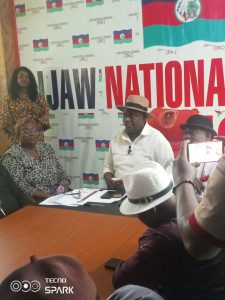
By Admin – Yenagoa
Ijaw National Congress (INC), the highest socio-cultural body representing the Ijaw people globally, has renewed its call for the establishment of two homogeneous Ijaw states—Toru-Ebe and Oil Rivers—citing persistent infrastructural under-development, political marginalization, and environmental neglect.
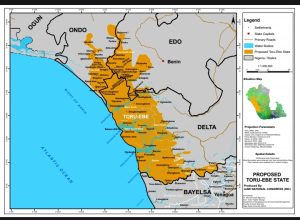
This was disclosed during a press conference held on Wednesday at Ijaw Ware in Yenagoa, Bayelsa State. The INC President, Prof. Benjamin Okaba, emphasized that despite being Nigeria’s fourth-largest ethnic group and hosting some of the country’s key oil export terminals as the single highest producer of oil and gas, the Ijaw people have endured systemic neglect, both in infrastructure and politics.
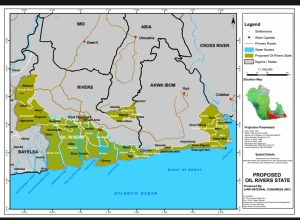
“We call on the Senate President, the Speaker of the House of Representatives, and all distinguished members of the National Assembly to seize this moment in history and act in the interest of justice,” Prof. Okaba stated.
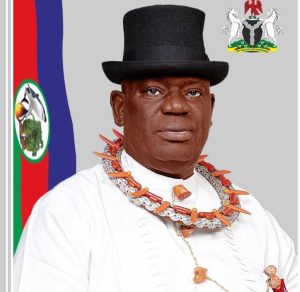
He described this demand as a crucial step toward achieving justice, equity, and lasting peace in the Niger Delta, stressing that it would help redress historical injustices, drive economic progress, and secure a better future for the Ijaw people.
According to the INC, the creation of the proposed states would not only address issues of political exclusion and under-development, but also strengthen national unity. The organization urged all Ijaw people, along with other well-meaning Nigerians, to support the move towards the actualization of this critical milestone for fairness and equity.
Advert
Environmental Alert: Urgent Repair Needed at Alakiri, Okrika
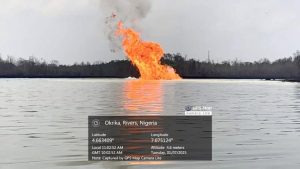
By Divine Perezide
In a developing environmental crisis, residents and concerned stakeholders have raised alarms about an ongoing issue threatening marine life in Alakiri (Ofiemina Ama), Okrika.
According to reports, the cause of the problem remains unknown. However, its impact is severe, as it is actively destroying the sea life in the affected region. A call for urgent intervention has been made to prevent further damage.
In a statement issued by a concerned source, it was noted: “Matter of Urgent Repair. Location: Alakiri (Ofiemina Ama) Okrika. Reason: Unknown. Status: Not yet stopped. Impact: Destroying our sea life.”
The exact nature of the issue has yet to be determined, but local authorities and environmental agencies are urged to investigate and address the situation promptly.
This report is credited to MEDBOSS, with the hashtag #MEDBOSS signaling a wider appeal for awareness and action.
As the crisis unfolds, environmentalists and community leaders emphasize the need for swift measures to mitigate further harm and preserve the delicate marine ecosystem of Okrika.


